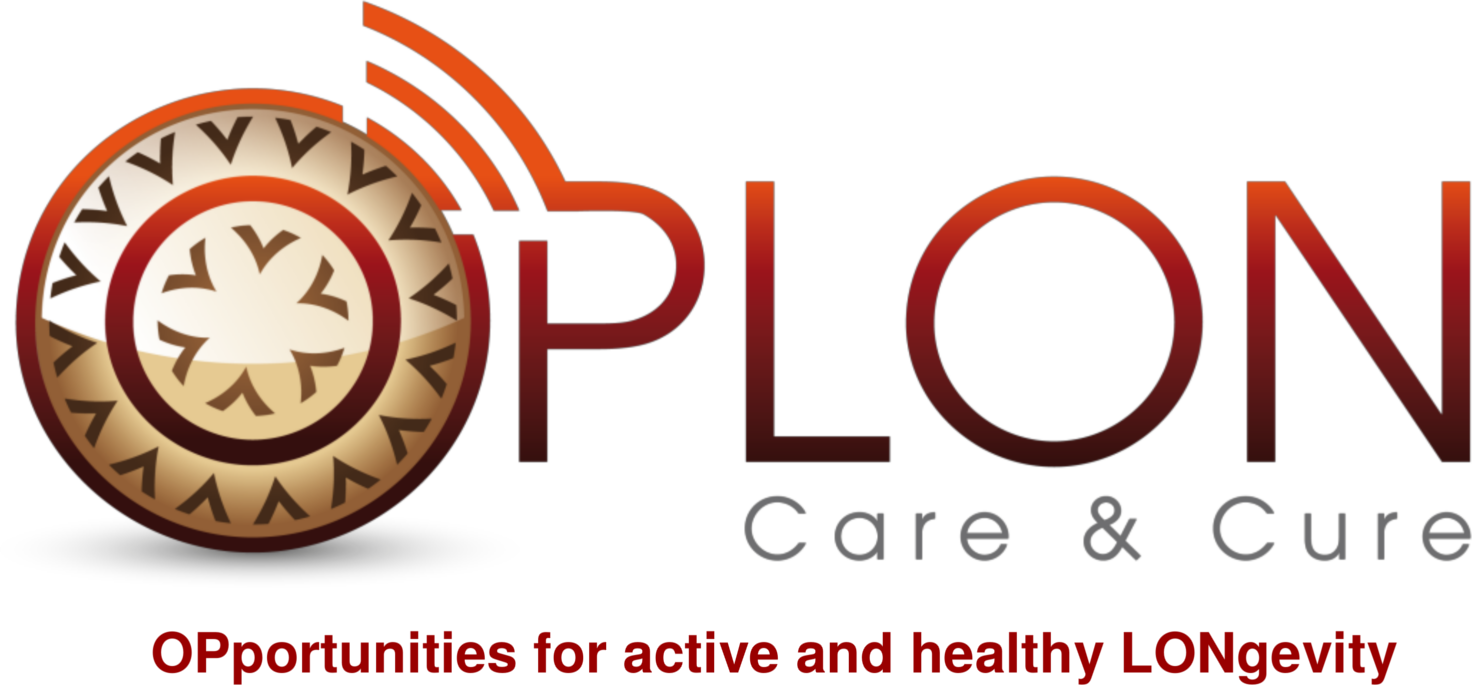
"The world is facing a situation without precedent: we soon will have more older people than children and more people at extreme old age than ever before. [...] Will population aging be accompanied by a longer period of good health, a sustained sense of well-being, and extended periods of social engagement and productivity, or will it be associated with more illness, disability, and dependency? [...] Are these futures inevitable, or can we act to establish a physical and social infrastructure that might foster better health and wellbeing in older age?"
"Global Health and Aging", 2011
National Institute on Aging
National Institutes of Health
U.S. Dep. of Health and Human Services
World Health Organization
The Project
OPLON (OPportunities for active and healthy LONgevity) proposes an evidence-based actions and methods aimed at preventing frailty, promoting the health of the elderly, planning and developing early diagnosis and “care and cure” tools and networks.
The solutions will be mainly for the elderly who are in the “risk zone”, who are starting to experience limitations in their day-to-day life due to cognitive or functional decline. Frailty is one of the most serious health risk factor and aging is by now recognized as an emergency ("Ageing well must be a global priority", 2014, World Health Organization).
OPLON is a national research project approved by the Italian Ministry of Education, University and Research (“National Smart Cities” D.D. n. 391/Ric, July 5, 2012).
SmartData group’s task
In the OPLON project, the responsibilites of the SmartData group involved defining the frailty risk prediction model, based on the a study by King's Fund.
In order to identify the dataset necessary for the definition of the frailty risk profile, we built a database for frail elderly in collaboration with Dr. Paolo Pandolfi and his Epidemiology Group of the Regional Health System. The database, for the City of Bologna, was constructed by integrating different sources: Health Registry, Hospital Discharge Record, Drug Assumption Registries, Death Registry, Mental Health Department Registry and Municipal Registry. In particular, we are interested in healthcare information (e.g. prescribed drugs, emergency room admissions, medical reports, ICD-9-CM coding), social information (e.g. family status, level of education, employment status) and cognitive tests' results.
We were able to identify a cohort of 96'000 over 65 year old citizens of Bologna. The cohort was a priority to establish a logistic regression model (frailty risk prediction model) with which assign a frailty index to each citizen of Bologna. The model classifies the risk in five different class.
The frailty risk prediction model was run on four dataset, one for each year from 2011 to 2014. We collected enough data to perform several analyses, the most interesting one concerns the transition volumes from a risk class to another one among the different years under review.
Frailty Risk Calculator
Within this project, the frailty condition is identified with the risk of hospitalisation or death within a year. According to this definition, we propose a predictive model for frailty condition based on 26 variables from 11 socio-clinical databases, where each variable has a different weight in the increase of the frailty risk score. In particular, the logistic regression based model assigns a frailty risk index to each subject aged over 65 years old, according to the expected risk. We design an on-line Frailty Risk Calculator to estimate the the probability of hospitalization or dying within a year, in adults aged over 65.
Try it yourself!
Frailty Risk Calculator